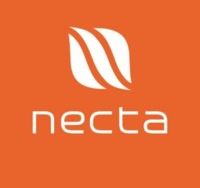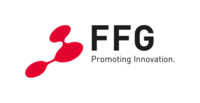Reducing Food Waste in Healthcare and Nursing Institutions.
Background
Ending hunger worldwide is the main goal of the UN World Food Programme (WFP). To achieve this goal, it is, for instance, not only necessary to ensure access to food and to promote sustainable agriculture but also to reduce food waste at the level of retailers and consumers. However, minimizing food waste is a difficult endeavour. To measure food waste in a structured manner and to motivate and instruct traders and consumers towards a more conscious and sustainable handling of food products are major challenges.
Project Content
Food waste is not only a topic that is debated in academic circles; efforts tackling it have also led to concrete measures and initiatives as well as brought about changes in food production. Although studies have shown that hospitals have particularly high levels of food waste, counter-measures are still scarce and not well-researched. While this is partly due to the complexity of the healthcare- and nursing sector, it is also true that not enough data has been collected so far or available data is not put to good use. In some cases, the amounts of wasted food are documented, but useful information (e.g., types of food such as meat or vegetables) to draw up reasonable sustainability scores are often missing. As a consequence, potentials for improvement remain unused. It is a main concern of the “necta” project to remedy this situation and tap these potentials.
Goals
When it comes to communal catering and care work, the provision of food products is highly standardised (portion sizes and meal composition). On the one hand, such conditions aggravate the problem of food waste, on the other hand, the actual consumption can be measured rather accurately. In other words, there is a problem but data that can be used to address it is also available. Using such data and combining, for instance, information on recipe specifications, actual consumption, and the sustainability costs of ingredients to develop strategies for reducing food waste in the healthcare sector is the aim of the necta project.
Methods
To integrate data on food consumption (drawn from patient-specific nutrition protocols) into the necta database, it is necessary to create interfaces. High standards of data privacy are ensured by setting up the system architecture on principles of Security & Privacy by Design. To take optimisation steps towards higher sustainability, ingredients as well as the meals from the necta recipe database are assigned a score (Eaternity Score) that helps to quantify the reduction of food waste (e.g., one kilogramme of beef is rated differently than one kilogramme of potatoes). A clever standardisation of products according to necta-specific criteria that helps to identify sustainable alternatives is introduced. Machine learning components and methods for food waste reduction are employed to better predict actual consumption, detect food waste early on, adjust portion sizes, and optimise purchasing.
Results
Reducing food waste is one of the UN’s Sustainable Development Goals (SDGs). The solution envisaged in this project would not only enable a more sustainable handling of food products in healthcare and nursing institutions, thereby supporting the UN’s targets, but also help to reduce costs while maintaining the high quality of the food products in terms of taste and nutritional value.
You want to know more? Feel free to ask!
Department of Computer Science and Security
Martin Papst
Andreas Losert
Markus Liebentritt
Mario Ploner
- FENZ Software GmBH (lead)



